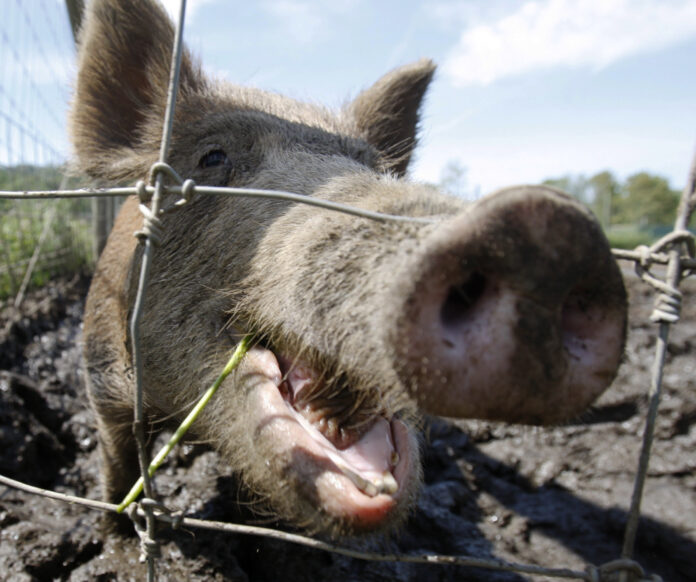
Farmers and ranchers have a new tool in the seemingly impossible effort to control destructive feral hogs: birth control.
The Texas Agriculture Department has approved a product called HogStop, an oral bait deployed for feral hogs which contains a contraceptive.
The product is available at feed stores or agricultural supply stores.
Millions of dollars are spent annually attempting to control the country’s feral hog population, with generally dismal results. Nationwide, foraging wild pigs are estimated to cause between $1.5 billion and $2.5 billion in damages each year.
In Texas, feral hogs have been documented in 253 of the state’s 254 counties, the exception being El Paso County at the extreme western tip of Texas. And experts concede they’re not really all that sure sus scrofa hasn’t set up housekeeping there as well.
“The feral hog problem has exploded into a crisis,” said Texas Agriculture Commissioner Sid Miller. “Texas farmers and ranchers need every tool they can get their hands on to stop these hogs. With this new product, we’re one step closer to my goal of making feral hogs an endangered species in Texas.”
The feral hog population in Texas is estimated at more than 2.6 million and growing. Feral hogs cause an estimated $52 million in damages annually in the state, and not just to farms and ranchlands, but to urban areas, parks and golf courses.
Feral hogs are even responsible for at least one a recent human death. A 59-year-old woman was killed in 2019 by hogs outside a home in Anahuac, located east of Houston.
The contraceptive HogStop is deployed in hog-specific feeders that keep out other animals and it works like this: When a male boar eats the laced feed, it acts as a contraceptive, reducing sperm counts and thus fertility.
And fertility may be the biggest obstacle to overcome in reducing wild pig numbers, since sows can produce two to three litters of 20 piglets every year. Those piglets can reach sexual maturity and produce offspring of their own within six months, although three months has been documented.
“This could be a great new weapon in the war on feral hogs,” Miller said. “It appears that unlike other hog baits, this is not a poison. Instead, it interrupts the reproduction of this animal over time, and therefore makes the product more humane.”
HogStop is considered a 25 (b) pesticide by the Environmental Protection Agency, and thus does not have to be registered with the Texas Agriculture Department prior to use.
In the Rio Grande Valley, feral hogs are one of the major contributors to the degradation of water quality in the lower Arroyo Colorado.
Animal feces from wild pigs, javelina and domestic livestock are a big concern along the lower reaches of the arroyo. After heavy rains followed by a northerly wind, fecal bacteria counts at South Padre Island beaches can rise to dangerously high levels.



